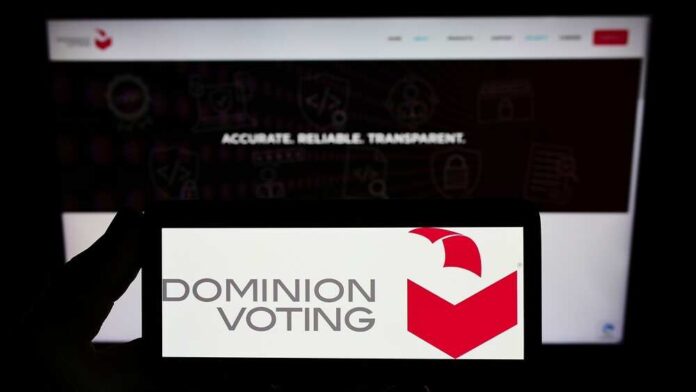
Republicans in the Arizona Legislature have exercised their plenary authority to ban the use of electronic voting machines in future federal elections, circumventing Democratic Gov. Katie Hobbs. This move, initiated through Senate Concurrent Resolution 1037 (SCR 1037), reflects the Republican lawmakers’ concerns about the security of electronic voting systems. However, Arizona Democrats, including Hobbs and Secretary of State Adrian Fontes, argue that SCR 1037 is non-binding and lacks legal force. As tensions rise, a protracted legal battle seems imminent, with Republicans asserting their authority and Democrats challenging their actions.
The Push for Restricting Electronic Voting Machines. SCR 1037, passed by House and Senate Republicans in March, imposes restrictions on the use of electronic voting systems in federal elections within Arizona. It stipulates that such systems cannot serve as the primary method for conducting, counting, tabulating, or verifying elections unless they meet specific criteria. These criteria include being manufactured in the U.S., accredited by the U.S. Department of Defense, and making their source codes publicly available. Additionally, certain data must be published within 24 hours after polls close.
Arizona Republicans’ National Security Argument. Arizona Republicans argue that, despite SCR 1037 being non-binding, they can invoke its authority to override state law due to national security concerns. They reference a 2017 report from the Department of Homeland Security, which designated election infrastructure as “critical” to the nation. By invoking national security, Republicans aim to bolster their case for the limitations on electronic voting machines.
Democratic Opposition and Veto. Democratic Gov. Katie Hobbs vetoed SCR 1037 in April, emphasizing that the resolution neither enhances democracy nor guarantees the exercise of Arizonans’ fundamental right to vote. Furthermore, Hobbs vetoed a binding piece of legislation with similar language, passed by both House and Senate Republicans. Senate Majority Leader Sonny Borrelli condemned Hobbs’ veto as a politically motivated maneuver.
Democrats Question Authority and Legal Impact. Democratic officials, including Secretary of State Adrian Fontes and Attorney General Kris Mayes, assert that SCR 1037 holds no legal power. Fontes emphasized that the resolution is non-binding and lacks the force of law, urging county leaders to proceed as usual and disregard SCR 1037. The attorney general’s office agreed with Fontes’ legal assessment, affirming that SCR 1037 has no legal impact.
Protracted Legal Battle Expected. Despite Democratic opposition, Senate Majority Leader Sonny Borrelli remains resolute, setting the stage for a prolonged legal clash between Arizona Republicans and Democrats over the authority of SCR 1037. Republican Senator Wendy Rogers affirmed their preparedness to face legal challenges, suggesting they are willing to go to court to defend their position. Rogers emphasized that the state legislature seeks to reclaim its plenary authority, framing the issue as a separation of powers matters.














